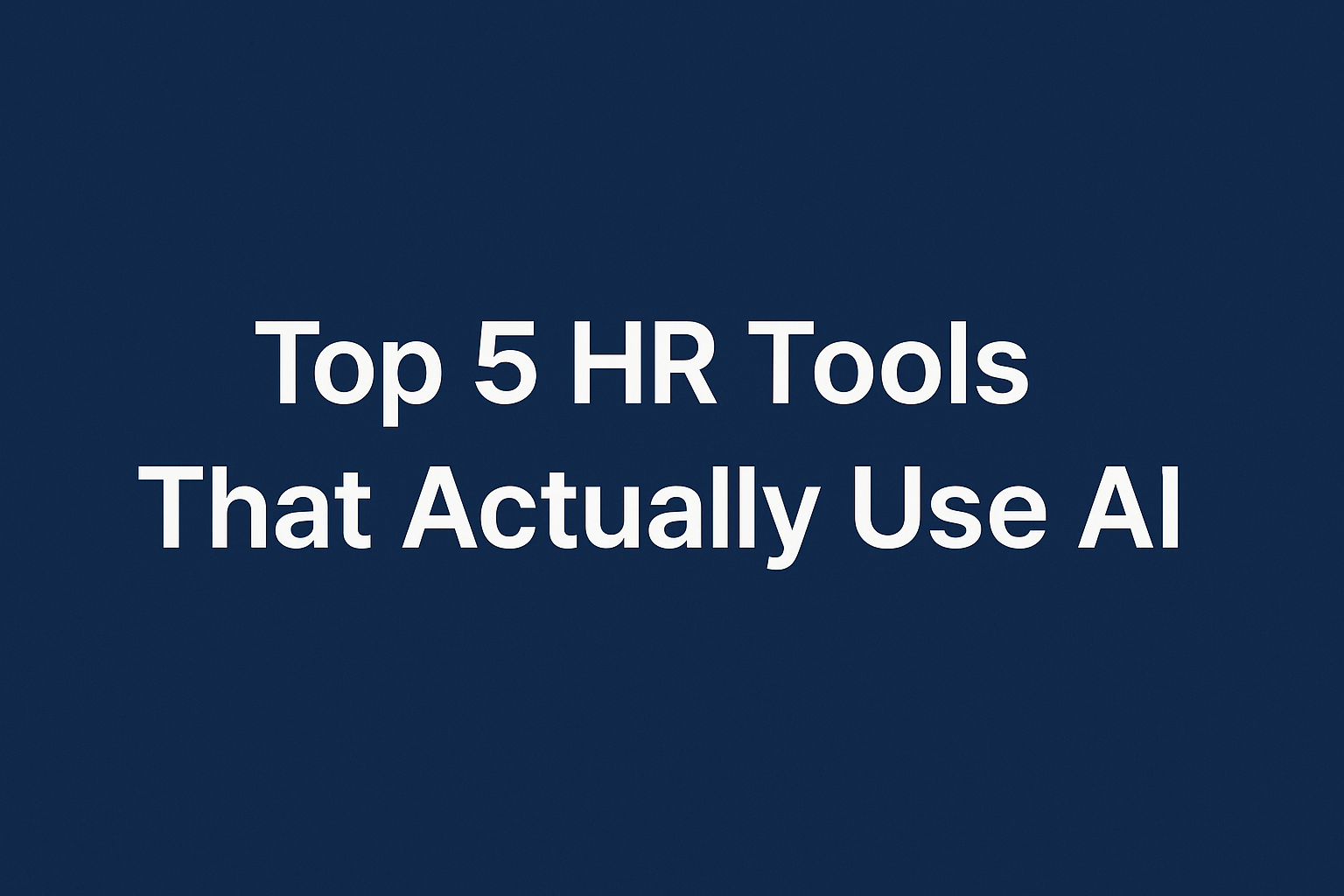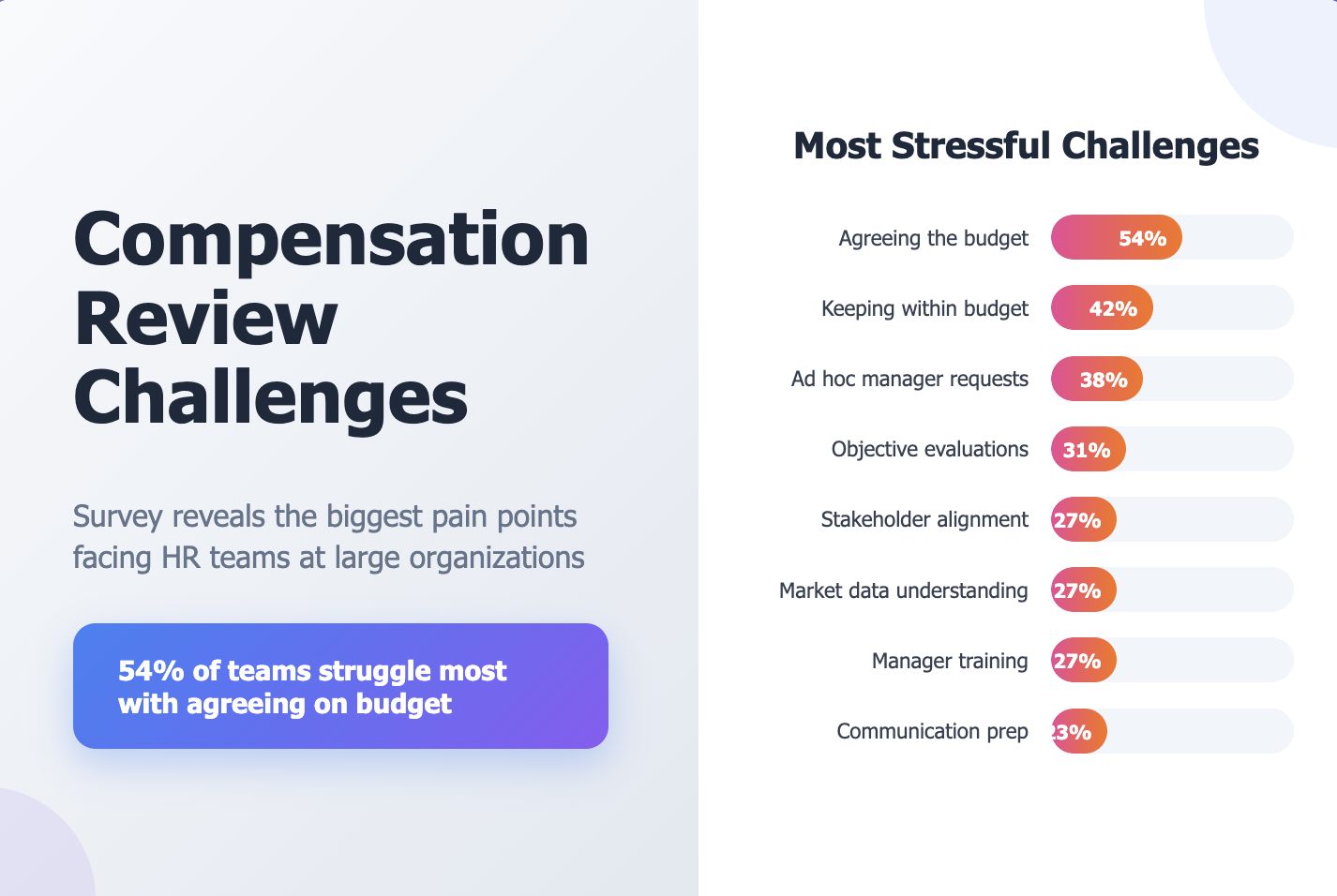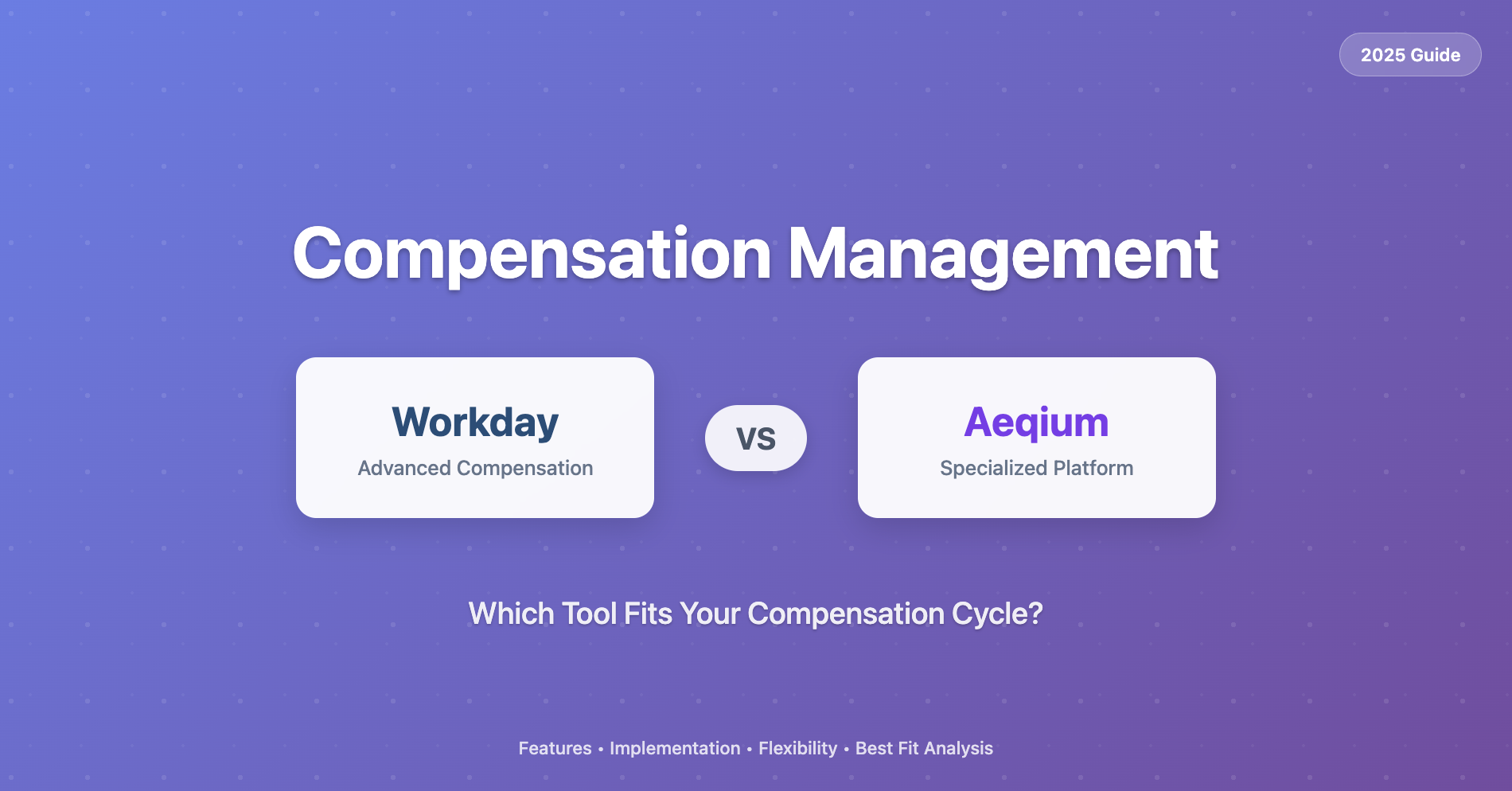Top 5 HR Tools That Actually Use AI to Make HR Teams Faster

I've been in more "AI-powered HR tools" demos over the past six months than I care to count. And here's what I've learned: most of them are solving problems that don't exist while completely missing the ones that do.
Just last week, I sat through a demo where the vendor proudly showed me their AI chatbot that could answer questions like "What's our PTO policy?" The catch? Their customers were already getting those answers from their employee handbook in about the same amount of time. Impressive? Sure. Useful? Not really.
But there are tools out there where AI is genuinely making HR teams faster, more accurate, and more strategic. The difference isn't in the sophistication of the technology. It's in whether the AI is actually removing work or just repackaging it with fancier graphics.
My Framework for Evaluating Real AI in HR
Before diving into specific tools, here's how I think about whether AI features are actually valuable:
Does it remove work or just repackage it? I talked to an HR leader recently who showed me their new "AI-powered" analytics dashboard. It looked great, but when we dug into it, all it did was create prettier charts from the same data they were already pulling manually from their HRIS. Same insights, shinier package, zero time saved.
Can you see it working in real-time? If the AI only shows up in demos but disappears in day-to-day workflows, it's probably not adding much value. The best AI tools feel invisible because they're seamlessly integrated into processes you're already doing.
Does it improve decision quality, speed, or accuracy? This is the big one. AI should make you either faster, smarter, or more precise. Ideally all three.
With that framework in mind, here are the tools I've seen deliver real impact:
1. Aeqium... AI That Eliminates Compensation Chaos
Best for: Total Rewards and Compensation teams at growing companies
I'm obviously biased here since this is our product, but I'll explain why I think our approach to AI works where others don't.
Most compensation planning still happens in spreadsheets, which means hours of manual cross-referencing between budget data, performance ratings, and market benchmarks. Our AI doesn't just make suggestions... it automatically identifies compression issues, flags budget overruns, and catches the inconsistencies that would normally take hours of manual review to find.
The key difference? We're not trying to replace compensation strategy. We're eliminating the 3am spreadsheet panic when you realize your engineering organization is $200K over budget two days before approvals are due. The AI handles execution complexity so compensation teams can focus on the strategic decisions that actually require human judgment.
2. HireVue... Bringing Structure to High-Volume Interviewing
Best for: Talent acquisition teams managing high-volume hiring
I know HireVue's video interviewing AI is controversial, and I'm not here to debate the ethics of automated candidate screening. But here's what I've seen work consistently: their structured interview prompts and consistency scoring.
When you're hiring 50+ people for similar roles, having AI help standardize your evaluation criteria genuinely saves time and reduces bias. The technology isn't replacing human judgment... it's ensuring that every candidate gets evaluated against the same criteria in the same way.
One talent leader I spoke with said it best: "HireVue doesn't tell me who to hire, but it makes sure I'm asking the right questions and scoring answers consistently across hundreds of interviews."
3. Eightfold AI... Skills-Based Matching That Actually Works
Best for: Enterprise talent teams focused on internal mobility and future-fit hiring
This one surprised me. Most "skills-based" tools are just keyword matching with extra steps. But Eightfold's AI actually identifies skill adjacencies and career trajectory patterns that human recruiters would miss.
I've seen it surface internal candidates for roles that would never show up in a traditional search... like recommending a customer success manager for a sales enablement role based on skills like stakeholder management, process design, and cross-functional collaboration.
The real value isn't just in external hiring. It's in helping companies redeploy existing talent more effectively, which is especially valuable in a market where good people are hard to find and expensive to replace.
4. Recruitee... Collaborative Hiring with Built-In Bias Detection
Best for: Mid-sized companies scaling structured recruiting processes
Recruitee's AI features aren't flashy, but they're practical. Their bias detection for job descriptions is simple but effective... it flags gendered language and suggests alternatives in real-time. Their candidate ranking system helps hiring managers focus on the top 20% of applicants instead of manually reviewing hundreds of resumes.
What I like about their approach is that the AI supports collaborative decision-making rather than trying to automate it. Multiple team members can provide input, and the AI synthesizes that feedback into actionable recommendations.
5. Beamery... Strategic Workforce Planning Beyond "We Need More Engineers"
Best for: Talent teams focused on long-term people strategy
If your workforce planning consists of "hire more software engineers," Beamery probably isn't for you. But if you're trying to get ahead of skill gaps and build talent pipelines for roles that don't exist yet, their AI forecasting capabilities are genuinely useful.
They analyze your current workforce, business growth patterns, and industry trends to predict where you'll have skill shortages 12-18 months out. It's particularly valuable for companies in rapidly evolving industries where the skills you need next year might be different from what you need today.
How to Spot AI That's Actually Worth Your Time
After evaluating dozens of these tools, here are the red flags that usually indicate AI features that sound impressive but don't deliver real value:
The demo is more impressive than the daily workflow. If the AI only shows up in carefully choreographed demos but disappears when you're actually trying to get work done, it's probably not ready for prime time.
It creates new work instead of eliminating existing work. I've seen tools that require you to input data specifically for the AI to analyze, when that same analysis could be done more quickly with existing reports.
The AI recommendations are obvious or irrelevant. If the AI is suggesting things you already know or solutions that don't fit your specific context, it's not adding value.
You can't understand or trust the reasoning. Black box AI recommendations are useless in HR, where you need to be able to explain and defend decisions.
My Bigger Takeaway on AI in HR
The most effective AI in HR doesn't feel magical or revolutionary. It just makes tedious, repetitive work disappear so your team can focus on the strategic decisions that actually require human expertise.
AI isn't going to replace HR strategy, but it's already replacing a lot of the administrative tasks that slow teams down. The tools that understand this distinction are the ones delivering real value today.
The question isn't whether AI will transform HR... it already is. The question is whether you're using tools that harness that transformation to make your team more effective, or whether you're getting distracted by impressive demos that don't translate to real-world impact.




